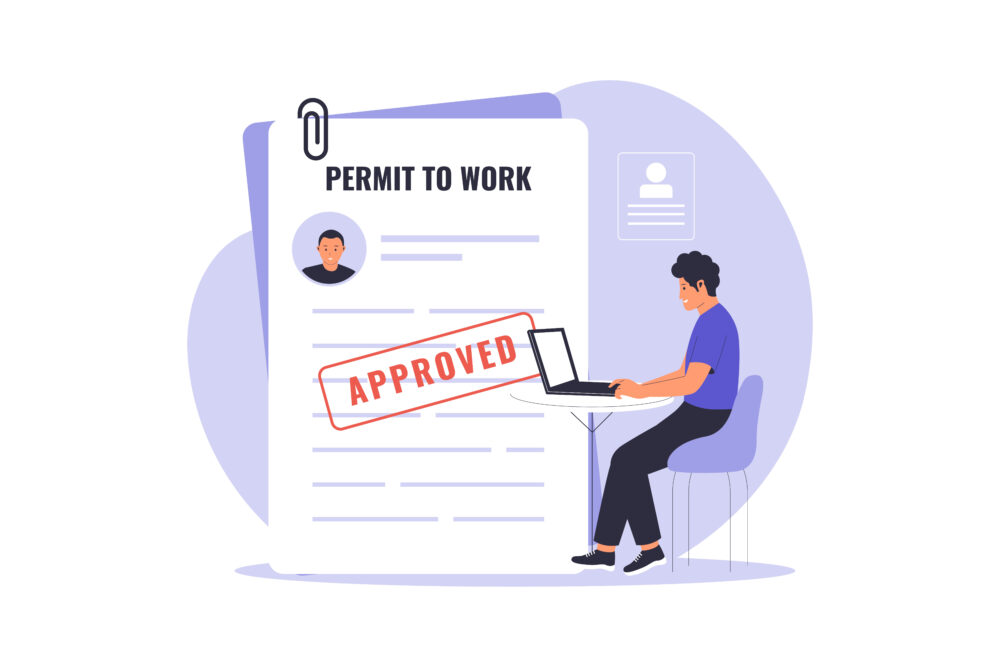Employees working part-time, commonly referred to as part-time workers or part-time employees, work fewer hours compared to the standard working hours set by law, collective labor agreements, or labor regulations.1 For part-time employees, current labor laws stipulate that they are entitled to wages, equal rights and obligations as full-time employees, equal opportunities, and are protected against discrimination. They are also guaranteed workplace safety and hygiene.2 Additionally, one of the obligations that both the employee and the employer must fulfill is compliance with social insurance regulations.
Therefore, in principle, part-time employees are entitled to the same benefits as full-time employees. However, legal issues concerning social insurance are governed by the 2014 Social Insurance Law and its guiding documents. To determine whether a part-time employee must participate in social insurance, both the employer and the employee need to consider the following two conditions:3
1. Eligible for social insurance participation
The Social Insurance Law 2014 currently mandates that various groups must participate in compulsory social insurance (SI). Some of the key groups include:
- Individuals working under indefinite-term labor contracts, fixed-term labor contracts, seasonal labor contracts, or contracts for a specific job with a duration of 3 months to less than 12 months, including labor contracts signed between the employer and the legal representative of an employee under 15 years old, as stipulated by labor law.
- Individuals working under labor contracts with a duration of 1 month to less than 3 months.
The scope of subjects required to participate in compulsory social insurance is quite broad. The two key conditions to determine this are: (1) the existence of a labor contract and (2) the duration of the labor contract. Specifically:
The signing of a labor contract is mandatory before an employer hires an employee.4 Employers should note that even if both parties sign a document with a different name (not labeled as a “labor contract”), if the content of the document reflects a paid job and the management, control, and supervision by one party, it will be considered a labor contract.5 This is not a new legal issue, but in practice, many employers have not paid enough attention to it. Moreover, the distinction between what constitutes management, control, and supervision in a labor contract compared to a service provider and a service user in a service contract is not always easy to determine.
The duration of the labor contract, according to current regulations, includes both fixed-term and indefinite-term contracts.6 However, the Social Insurance Law 2014 provides more specific guidelines on the types of labor contracts, including seasonal or specific job contracts with a duration of 3 months to less than 12 months, and contracts with a duration of 1 month to less than 3 months.
Based on these regulations and the above analysis, if a labor contract is signed with a duration of 1 month or more, the employee is subject to compulsory social insurance participation.
2. Statisfying the minimum working days per month
According to Article 85.3 of the Social Insurance Law: “Employees who do not work and do not receive wages for 14 working days or more in a month will not contribute to social insurance for that month. The period during which the employee does not work will not be counted towards social insurance benefits, except in cases of maternity leave.”
Based on the above regulation and considering the nature of part-time work, the critical issue is whether part-time employees meet the conditions stipulated in Article 85.3 of the Social Insurance Law.
In relation to this matter, the regulations on how to determine working days for salary and social insurance contributions do not provide direct guidance under labor and social insurance laws. Specifically:
- The 2019 Labor Code only stipulates that normal working hours shall not exceed 8 hours per day and 48 hours per week.7 Employees who work fewer hours than the normal working time mentioned above are considered part-time employees.
- A work shift is the working period during which an employee works from the time they start their duties until they finish and hand over tasks, including both working hours and break times.8 Organizing shift work refers to the arrangement of at least 2 people or 2 groups of people alternating in the same position over a continuous 24-hour period.9
Accordingly, current regulations do not distinguish between the working days of full-time employees and part-time employees working in shifts.
Regarding this issue, Apolat Legal also consulted with the social insurance authority (on an anonymous basis), and their stance is that no distinction is made between the working days of full-time and part-time employees. Therefore, for each working day or shift, if the employee actually works and the employer records their attendance, both the employer and the employee are responsible for participating in and contributing to social insurance as required.
If the employer and the employee do not comply with this regulation, the government may impose administrative penalties related to social insurance contributions. Specifically:10
For the employee:
- An employee who colludes with the employer to avoid participating in compulsory social insurance, participates in the wrong category, or at the incorrect rate, will be subject to a fine ranging from VND 500,000 to VND 1,000,000.
For the employer:
- A fine equal to 12% to under 15% of total amount of compulsory social insurance and unemployment insurance premiums payable at the date of issuance of violation record, but not exceeding VND 75.000.000 shall be imposed upon an employer for commission of one of the following violations:
-
- Making late payment of compulsory social insurance and unemployment insurance premiums;
-
- Paying social insurance and unemployment insurance premiums under the prescribed rates but not to the extent that they are accused of evasion of payment of insurance premiums;
-
- Failing to pay social insurance and unemployment insurance premiums for total number of employees eligible for participation in compulsory social insurance and unemployment insurance but not to the extent that they are accused of evasion of payment of insurance premiums;
-
- Appropriating social insurance and unemployment insurance premiums paid by employees.
- A fine equal to 18% to 20% of total amount of compulsory social insurance and unemployment insurance premiums payable at the date of issuance of violation record, but not exceeding VND 75.000.000 shall be imposed upon an employer for failing to pay compulsory social insurance and unemployment insurance premiums for total number of employees eligible for participation in compulsory social insurance and unemployment insurance, if not liable to criminal prosecution.
In addition to fines, the competent authorities may apply remedial measures such as:
- The employer is compelled to pay total amount of compulsory social insurance and unemployment insurance premiums payable to social insurance authorities;
- The employer that commits the violations for a duration of at least 30 days is compelled to pay an amount of interest charged on insurance premiums accrued due to late payment, non-payment, evasion of payment or appropriation of payments, which is calculated by using the interest rate that is 02 times higher than the average interest rate of investment made by the social insurance fund in the previous year. If not doing so, at the request of competent persons, banks, other credit institutions or state treasuries shall withdraw money from the violating employer’s deposit accounts to transfer deferred amounts or outstanding amounts of insurance premiums plus the interest on such amounts, which is calculated at the highest rate of the demand deposit interest rates publicly quoted by state-owned commercial banks on the date of penalty imposition, to the account of the relevant social insurance authority.
(1) Article 32.1 Labor Code 2019
(2) Article 32.3 Labor Code 2019
(3) Article 5.2.c and Article 6.2.d Labor Code 2019
(4) Article 13.2 Labor Code 2019
(5) Article 13.1 Labor Code 2019
(6) Article 20.1 Labor Code 2019
(7) Article 105.1 Labor Code 2019
(8) Article 63.1 of Decree 145/2020/ND-CP
(9) Article 63.2 of Decree 145/2020/ND-CP
(10) Article 39 of Decree 122/2022/ND-CP
See more:
-
Social insurance obligations during the probation period stipulated in an employment agreements
-
Regulations on amounts subject to calculating the payable social insurance for employees
Disclaimers:
This article is for general information purposes only and is not intended to provide any legal advice for any particular case. The legal provisions referenced in the content are in effect at the time of publication but may have expired at the time you read the content. We therefore advise that you always consult a professional consultant before applying any content.
For issues related to the content or intellectual property rights of the article, please email cs@apolatlegal.vn.
Apolat Legal is a law firm in Vietnam with experience and capacity to provide consulting services related to Employment and contact our team of lawyers in Vietnam via email info@apolatlegal.com.





































